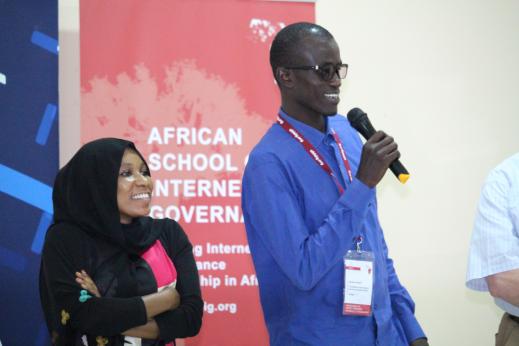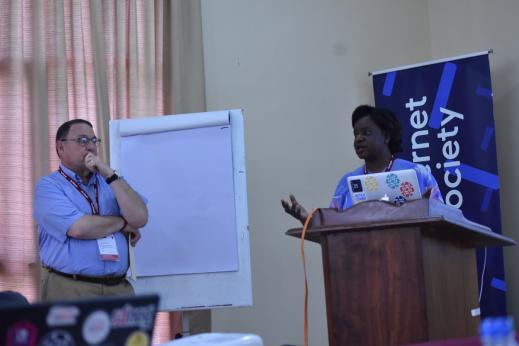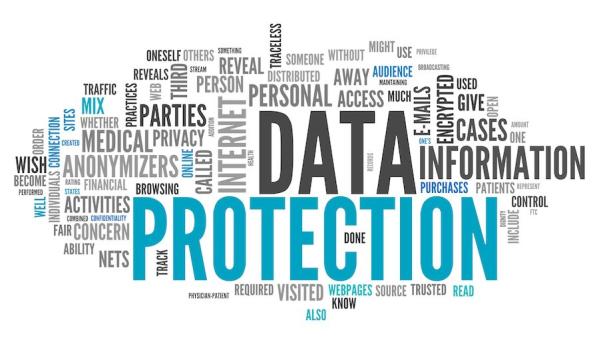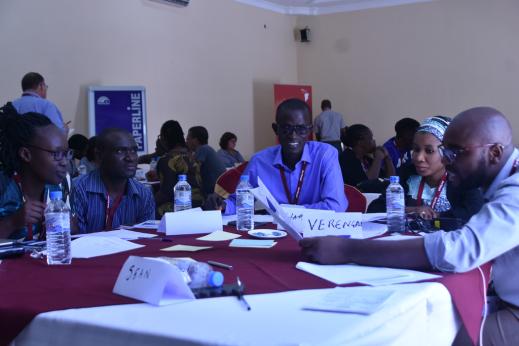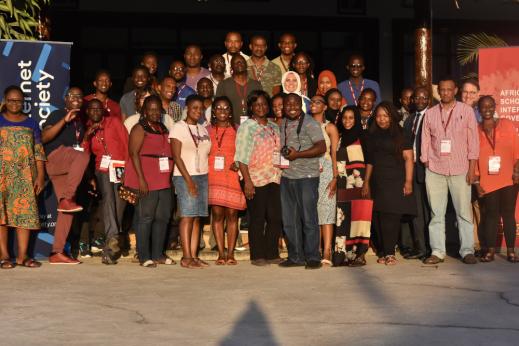When I was first accepted to join the African School on Internet Governance (AfriSIG), I thought that it would be a dense, academic course, with tech experts and policy makers coming together to discuss issues around internet governance. Coming from a non-tech, civil society background (my work is on curbing hate speech in Nigeria through online reporting and countering), I arrived at AfriSIG as a novice to the internet governance table. My perception was that internet governance is all about monitoring and governing content online with a focus on data… Read more
Blog
La 6e École africaine sur la Gouvernance de l’Internet (AfriSIG) qui se tient à Zanzibar en Tanzanie du 11 au 16 octobre 2018, réunit trente-cinq apprenants et une vingtaine d’encadreurs, experts et personnes ressources. L’AfriSIG est un cours intensif annuel d’apprentissage et de partage des connaissances de cinq jours, organisé par l’Association pour le Progrès des Communications (APC) et la… Read more
The Internet Society’s Collaborative Internet Governance Project Workshop, facilitated by Larry Strickling and Fiona Asonga of the Internet Society (ISOC), evaluates different negotiation processes by exploring multiple case studies and scenarios. The purpose of the event is to help fellows from the school of internet governance to build their capacity for effective negotiation in complex, real-life situations.
Having run the event with fellows from the European School of Internet Governance (EuroSIG) and the African School of Internet Governance… Read more
One of the ways the African School on Internet Governance (AfriSIG) equips leading African scholars and activists from diverse sectors, backgrounds and ages to participate in local and international internet governance structures is through a hands-on practicum. This practical exercise is intended to give AfriSIG fellows the chance to participate in multistakeholder decision-making, using available methods and processes in a realistic environment, while discussing an issue related to internet governance. This year, the practicum is focused on the topic of… Read more
Life is a series of relationships, whether business or personal, and each of these relationships must be based on trust. The aim of the African School on Internet Governance (AfriSIG) is to give Africans from diverse sectors and stakeholder groups the opportunity to gain knowledge and confidence to participate effectively in internet governance processes and debates nationally, regionally and globally. For us to achieve that, we must be trustworthy and trusting. Our first exercise during the AfriSIG class of 2018 was the oil pricing exercise, from which I… Read more
Dear AfriSIG Class of 2018,
My name is Chenai Chair and I work for Research ICT Africa. Three years ago, I caught a flight for the first time to Addis Ababa, Ethiopia, excited and nervous to be joining the AfriSIG/gigX class of 2015. The Gender and Internet eXchange (gigX) was the inaugural meeting that invited those who worked on gender to chart the course of internet governance from a feminist perspective.
I knew no other student in the programme, but at the end of it I walked out with friends, mentors and a recurring… Read more
This year’s African School on Internet Governance (AfriSIG) was preceded by a two-day skills training workshop, facilitated by the Internet Society, aimed to equip fellows with the skills to effectively participate in multistakeholder discussions.
Internet governance processes have adopted multistakeholderism as a model for effective dialogue and decision making at a national, regional and global level. A key principle of multistakeholder engagement is that, in order to reach a consensual decision, all stakeholders must be… Read more
As a research officer at Paradigm Initiative, my daily work involves a number of interesting tasks. I lead research on Paradigm Initiative’s annual Digital Rights in Africa report, together with a network of researchers within our organisation and across the continent. I also produce policy briefs and blog posts and manage research partnerships with local, regional and international organisations.
As a member of my organisation’s policy advocacy and communications teams, I’m also involved in policy advocacy and communications in defence of… Read more
Attending the African School on Internet Governance (AfriSIG) is my first experience in any event related to internet governance. This has given me the opportunity to interact with different stakeholders from all walks of life and I enjoyed it.
The school was generally good and constituted a very active and enthusiastic class that inspired participants and resource persons to reason things out together. I liked the diversity of the class, not only from a regional perspective but also from the different professional backgrounds.
Most participants were not new to the internet… Read more
I am a young woman who grew up in the rural areas of Limpopo in South Africa, where there is not much development done, internet is regarded as a luxury, and technology is not exposed. It has therefore been much of a privilege for me to be a participant at the 5th African School on Internet Governance (AfriSIG).
In Limpopo, many people have different technological gadgets but use them in a way that is not necessarily beneficial to them. Many people have mobile phones in these rural areas; however, there are times when they do not even have network coverage. And without this network… Read more


